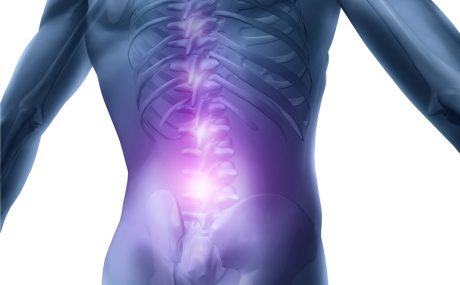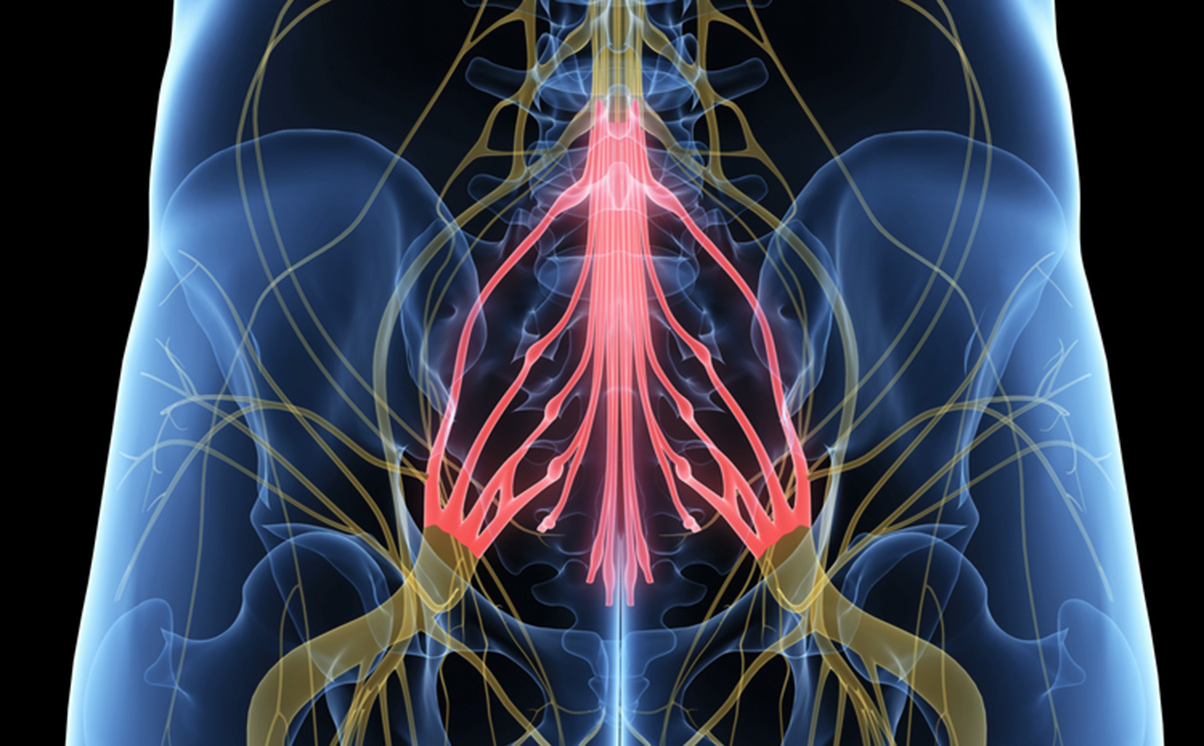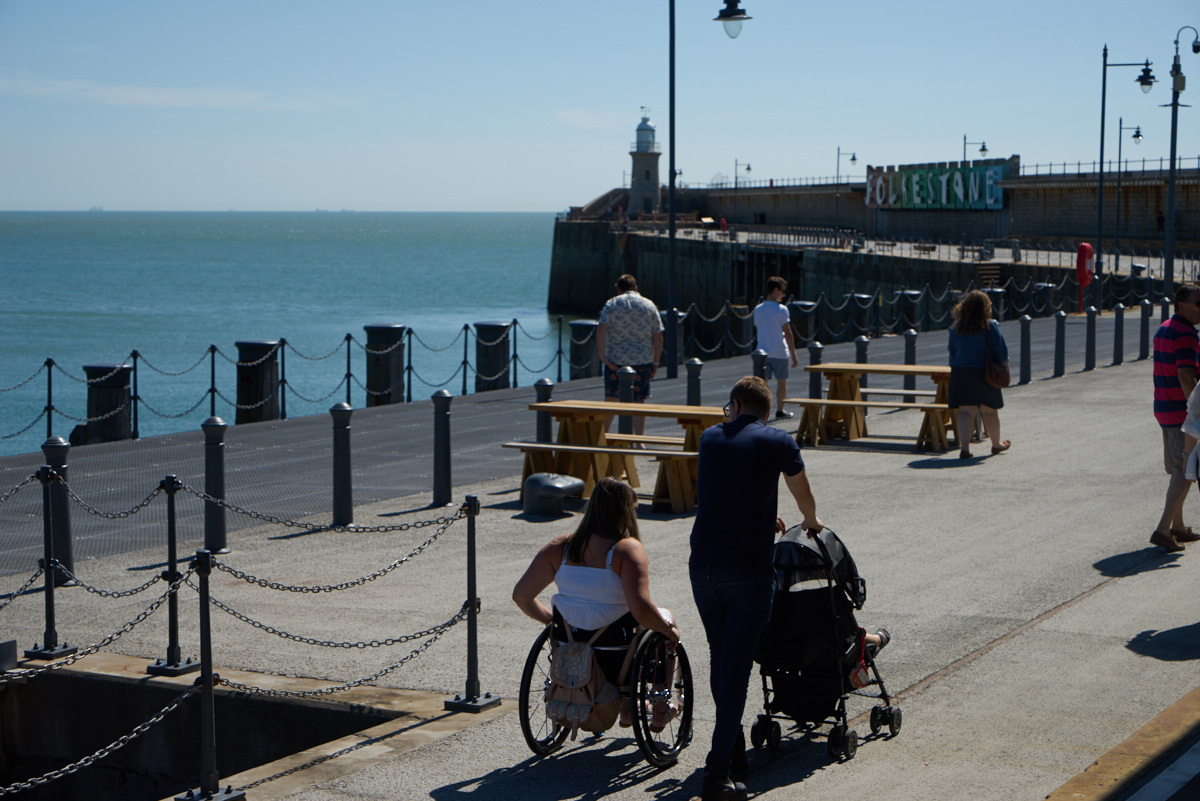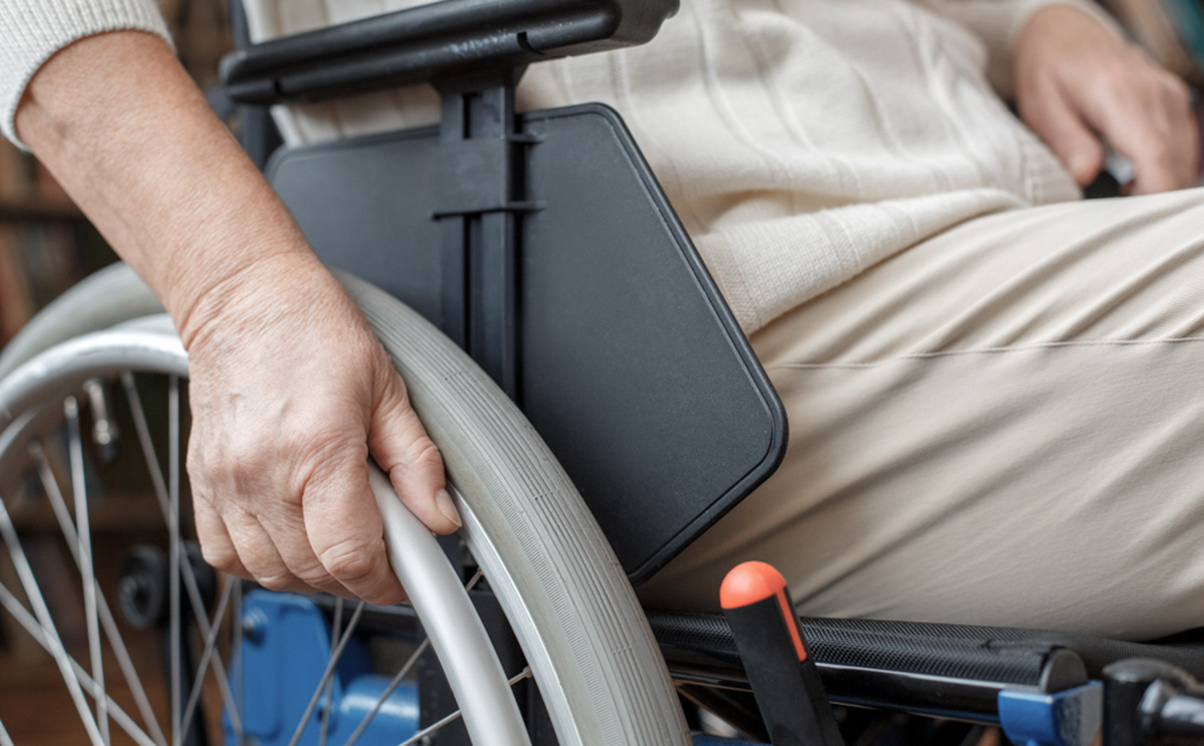Our client, a man in his 40s, was left significantly disabled when an A&E doctor failed to recognise that he had signs and symptoms suggestive of cauda equina syndrome.
Background
Our client was a fit and healthy HGV driver. He lived with his wife and their seven-year-old disabled grandson, of whom they had guardianship. Our client worked for the local council as a road sweeper driver.
Our client and his family loved being outdoors. Our client loved gardening and would spend most of his spare time in the garden at home. It was one of the things that his grandson, who had severe learning difficulties, autism and epilepsy, enjoyed to do with him. The family also enjoyed camping. They had a caravan and would go away as often as they could.
The incident and treatment
One weekend, our client twisted his back knocking down a wall with a sledgehammer. The following day, he was taken by ambulance to A&E at his local district hospital. He was complaining of severe pain in his lower back with pins and needles in the upper thighs and numbness below the knees. He was unable to weight-bear.
Our client was diagnosed with a muscle sprain and discharged home with painkillers.
There was a conflict in the evidence between the parties as to the nature of the examination that our client underwent in A&E.
Our client said that the doctor who assessed him undertook a pin-prick test whilst our client was still wearing his jeans. The doctor did not test our client’s perianal sensation and did not perform a rectal examination. Our client was unable to bear weight when he was discharged and had to be helped into a wheelchair by a nurse and his wife.
The defendant said that the senior grade A&E doctor performed a standard neurological examination of the lower limbs, which indicated that power, reflexes and sensation were normal. They claimed that the diagnosis and discharge were reasonable.
The following day, our client returned to hospital having become incontinent of urine. He was transferred by ambulance to the neurosurgery team at a nearby teaching hospital where he underwent an MRI scan. This demonstrated an L3/L4 central disc prolapse causing cauda equina compression. That night, our client underwent L3 and L4 laminectomy and bilateral L3/4 discectomy.
As a result of the delay in diagnosis, our client sustained permanent and irreversible damage to his cauda equina.
He had symptoms including the following:
- Sensory abnormality: he had absent sensation around the perineum area bilaterally, down the backs of both legs to the calves, intermittent electric shock-type sensation in his legs and feet and no scrotal sensation
- Spasms in his legs at night and disturbed sleep
- Restricted standing and sitting tolerance
- Leg weakness and foot drop
- Bladder dysfunction: he relied on intermittent self-catheterisation around four to five times per day and had occasional incontinence
- Bowel dysfunction; he required manual assistance to evacuate his bowels and had occasional incontinence
- Loss of sexual function
- His mobility was limited. His walking was restricted to 100 yards with the use of a walking stick. He was clumsy on his feet and often tripped. For longer distances he used crutches and a wheelchair. He could undertake light domestic tasks and occasional light gardening.
The claim
Our client claimed that had an adequate examination been performed by the senior grade A&E doctor, his neurological abnormalities would have triggered referral for an orthopaedic review. An orthopaedic doctor would have referred him to the neurosurgeons and an MRI scan would have been ordered. Our client’s disc prolapse would have been seen on the scan, and he would have been taken to surgery. He would have been operated on around 24 hours earlier than he was.
At that earlier stage, our client’s cauda equina syndrome would have been incomplete, because he had not lost bladder sensation. He would have made a far better recovery than he did, with only minor neurological sequelae, such as a degree of bladder irritability and mildly impaired sexual function.
This case was unusual because the defendant agreed with our client’s causation case and timeline of events. It is more usual for breach of duty to be admitted but causation denied (ie it is admitted that something was done wrong but denied that this wrongdoing made a difference to our client’s outcome). In this case, the defendant admitted that if the court preferred our client’s evidence about the A&E examination that had taken place, he should have been referred for further review.
The claim therefore became a breach of duty only dispute, and this was a factual rather than legal dispute; the word of our client and his wife against the word of the doctor. Such cases are notoriously difficult to win.
Settlement
The case was listed for a split trial. This meant that a trial would take place just on what happened on the day our client attended A&E. The parties held a settlement meeting but were not able to agree a settlement. Fortunately, six days before trial, the defendant agreed a “split liability” settlement on terms of 85%/15%. This meant that the defendant accepted 85% responsibility for the claim and our client would go on to receive 85% of whatever sum was agreed for his compensation.
At this time, our client commented:
“Thank you so much for giving me the great news that the NHS has accepted our offer to settle the claim. I would also like to say a big thank you for believing in me and working as hard as you have on my case.
“I am absolutely overwhelmed by emotion on the fact that we have agreed a settlement, it is a great weight off my shoulders that we don’t have to go to court to prove ourselves. Thank you again for all you have done for me.”
The claim settled 18 months later for a six figure sum. Our client went on to comment:
“I really appreciate the work you have done on my case and at times put me at ease when I have not quite understood the procedure.”
Life beyond injury
During the course of the claim, our client had attempted to return to work but could not manage to drive a road sweeper with his injuries. He had been retired on the grounds of ill health. He did not want to give up work but was left with no choice.
Our client received an interim payment after liability was settled and he used this to buy a new car, which was fitted with hand controls. He was therefore able to regain some of his independence by driving himself again. He also bought a new caravan which could accommodate his equipment.
Our client had found it very difficult to climb the stairs at home and was spending three or four nights per week sleeping in the dining room downstairs. He and his wife lived in rented accommodation so were unable to make many adaptations to the property.
Our client’s main priority was purchasing a bungalow. With the help of a case manager and an occupational therapist, he found a suitable property and the purchase completed very shortly after his case settled.
Our client continues his story:
“I am now back enjoying some of the activities I used to before my injury, like gardening and caravanning. I have been able to purchase a caravan that could be adapted to my needs.
“I used to be a keen motorcyclist and whilst getting back on a bike is not going to be possible. I have purchased a trike which I will be able to use in the future. I also have a dog which has helped me settle into a routine and ensure I get out for the exercise I need.
“The settlement has meant I have no money worries which I would have otherwise had. I have security and peace of mind. It’s a great weight off my mind knowing that the future of my family will be taken care of.”
Testimonial
Our client comments on the service he received from Stewarts:
“Stewarts were very helpful and made me understand that whilst suing an organisation isn’t pleasant, it was necessary given I was unable to work again. Initially I just wanted an apology but as things progressed and I discovered everything that had gone wrong I knew I needed more than that.
“They really put my mind at ease. Anna visited the house a few times, and I was made to feel very welcome when I visited their offices. The team takes the time to understand the person they are representing. If I had any questions that they were unable to answer straight away, they would come back to me within a day, and they were so knowledgeable about my condition. I received outstanding service, and the team were very professional.”
You can find further information regarding our expertise, experience and team on our Clinical Negligence pages.
If you require assistance from our team, please contact us or request a call back from one of our lawyers by submitting this form.
Life beyond injury
We have teamed up with other clients who have catastrophic injuries to tell their stories of Life Beyond Injury. Please visit the Life Beyond Injury webpages here.
We hope that by sharing these stories, newly injured people can see that with the right support they too can overcome adversity to lead full and active lives.
You can join in the conversation and share your stories of overcoming adversity to lead a fulfilling life beyond injury: on Twitter, here #lifebeyondinjury; or on Facebook, here #lifebeyondinjury.
Subscribe – In order to receive our news straight to your inbox, subscribe here. Our newsletters are sent no more than once a month.





